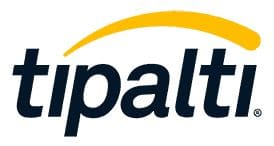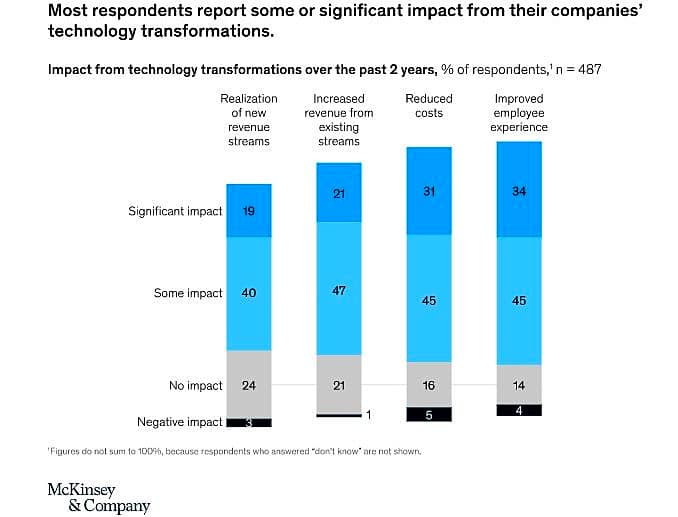Many successful startups face the same issue when scaling up. Do they expand their Accounts Team headcount to match an increasing workload, or do they accept a possible initial disruption and automate their processes? Modern finance teams are finding the best way is to apply new tools to automate everyday tasks such as accounts payable, payroll, group consolidation, receipt scanning, invoice processing, and expense management. Finance department automation increases efficiency and produces high-quality information. It transforms modern CFOs to be more proactive in running a business, though providing better and faster insights to other senior colleagues.
 At what stage of a company’s growth is it viable to adopt an automated system? The best advice we’ve heard is from Rob Israch, GM Europe and CMO at leading automated payments provider Tipalti. He observes the tipping point is around 100 transactions per month.
At what stage of a company’s growth is it viable to adopt an automated system? The best advice we’ve heard is from Rob Israch, GM Europe and CMO at leading automated payments provider Tipalti. He observes the tipping point is around 100 transactions per month.
Rob Israch will be one of a panel of speakers who will cover this topic in an online event in the BOLD Series on February 17th, “Scaleup Success: Digitising Financial Options.”
Before then, here is a closer look at three key benefit areas of automated payment systems.
Accounts Payable
Accounts payable is a critical and regular task for finance teams. Ordinarily completed once a week or fortnight, it takes up significant time to collect all invoices, enter payment details onto bank websites, and attain the necessary approvals for payment.
AP automation provides three clear benefits:
- Vendors can facilitate multiple approvals and pull payment data from accounting software to a banking and payments interface. This helps remove friction associated with payment runs.
- Saved time can be used on higher-value tasks.
- There is less likelihood of paying suppliers late, and it can speed up payment of invoices that they submit late. Both contribute to better supplier relationships.
Payroll
This is another critical finance task, though easy to get wrong due to the amount of accurate information needed to pay people the correct amount according to their tax code. Employees are one of any business’s most important assets, and it’s essential to keep them happy with accurate payments on time. This is particularly true when a company uses freelancers and/or gig-economy microtaskers. Payments may have to be made cross-border in multiple currencies, subject to fluctuating exchange rates and various tax regimes. It is less prone to error using finance department automation.
Research shows the biggest reason for freelance or gig economy workers to change ‘employers’ is late payment or the use of inflexible systems. Excessive fees for cross-border payments is another irritant. Almost 75% of the sample said they would leave a marketplace because of a payment issue. An excessive churn of virtual workers who are familiar with the company and its ways of doing things can be as problematic as losing permanent staff. New ones have to be recruited, and they often have to gain some familiarity with the business to be economically productive (perhaps more so in the case of freelancers than microtaskers).
Group Consolidation
Some accounting software lacks functionality to consolidate transactions at a group level. Finance professionals usually get around this by exporting figures for individual companies into spreadsheets and manually making adjustments to consolidate group companies. The scope for error becomes higher across the bigger groups, potentially delaying the month-end close.
Software that uses optical character recognition (OCR) technology to extract receipt and purchase invoice data allows bookkeeping transactions to be imported into the core accounting software effortlessly, and assigns them to the correct account category.
Transforming the CFO role
According to a McKinsey study, companies that make minor, incremental modifications are less likely to grow. But companies that are embracing robust upgrades to their workflow processes, such as through finance department automation, can effectively scale. Successful finance leaders rely on automation, data analytics, and integration tools to scale their growing operations.
An increase in technology adoption is certainly an operational benefit. As a company grows, its initial startup finance/accounts team can acquire technology skills to handle a higher volume of more elaborate transactions, more accurately, which reduces time spent resolving queries.
It allows modern CFOs to emerge from a number crunching job to be a more strategic partner with senior colleagues across an organization. These stakeholders can be more agile when responding to market changes through acting on timely, accurate management information. Automation in the Finance department could actually show the way for potential benefits of automating other aspects of the business in sales, marketing or purchasing. Modern CFOs are stepping up to be an agent of change in the digital era.
Friction-less touch points with employees, other workers, suppliers and clients impacts on their perception of the company, and makes it more positive. Finance automation thus effectively brings the payment and accounting processes out from what used to be regarded as solely a back-office function, and endows them with internal and B2B marketing roles.
Hear from experts
The BOLD Session online event on “Scaleup Success: Digitising Finance Operations” on February 17, 2022, brings together three leading proponents of finance department automation: Rob Israch, GM Europe & CMO of U.S. automated payments service provider Tipalti; Rich Webb, Founder of Performance Ninja; and Joao Martires, COO of YunoJuno.
You will gain insights and learn:
- Key digital trends driving the financial planning process
- Developing the right digital strategy for finance operations
- Biggest opportunities for finance and accounting
Free Registration is open until Tuesday February 15th.







